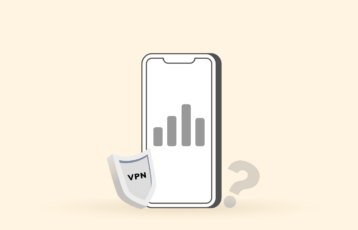Today, many VPNs are available in the market, offering different features and price tags. Of course, some providers offer free services, too. However, they are not as vigilant as the most paid ones regarding performance and security.
This abundance of VPN services has made it difficult for an average user to pick the right option.
So, here we present a detailed VPN selection guide for you. We will explain how to choose the right VPN and review the purposes a VPN would serve you.
A quick guide on how to choose the right VPN
Here’s a summary of what to look for when selecting a VPN service provider:
- Encryption protocols: A reliable VPN service should provide secure protocols. Some of the most popular include OpenVPN, PPTP, and L2TP/IPsec. Moreover, more VPNs are embracing the WireGuard protocol, which boasts better security and speed.
- Zero logs policy: Review the VPN provider’s data-logging regulations to ensure the service adheres to the strict no-logging policy. This means that they never record any identifying personal data unless it is to enhance performance.
- Jurisdiction: Choose a VPN outside the 14-Eyes Alliance to avoid prying eyes on your online activities.
- Global coverage: For optimal performance, stable connections, and less congestion, use a VPN with an extensive server network spread worldwide.
- DNS/1Pv6 leaks: Choose a VPN that effectively prevents DNS/IPv6 leaks to protect your online privacy.
- Basic VPN feautres: Before purchasing a VPN subscription, ensure it has an easy-to-use interface, a reliable kill switch, split tunneling, multiple device support, and unlimited bandwidth.
- Subscription prices and packages: Free VPNs violate your privacy. So, seek out VPN providers that provide premium services at a low cost.
- Payment methods: A VPN with many payment methods is desirable as you can choose an alternative if you face problems paying with one option. In addition, look for one with a cryptocurrency option for anonymous payments.
- Free trial or money-back guarantee: Select a VPN with free or premium trials. Most paid trials include a no-questions-asked money-back guarantee with which you may test the service before committing to a subscription.
- Customer support: You might face issues when using a VPN, whether you are an avid user or a beginner. So, choose a VPN service with vigilant customer service to help you if you need assistance.
- Customer reviews: Positive customer feedback may indicate the VPN provider’s efficiency. However, some reviews might be fake.
What does a VPN do?
Usually, your device can connect to the internet because of the unique IP address assigned to it, which can reveal your location. That’s where a VPN comes in. It will reroute your traffic through an intermediary server and give you a new IP address.
Changing the IP address allows you to access blocked content from anywhere. Also, premium VPNs encrypt your traffic to keep you safe. As a result, no one can see what you are doing online, even your ISP. In addition, some VPNs have additional features like ad and malware blockers to give you a safe and smooth online experience.
Why do people use a VPN?
While every privacy enthusiast recommends using a VPN today, you might wonder why regular internet users need it. So, here’s a quick review of how this fantastic security tool benefits users like you.
At first, the VPNs allow changing the IP address location by rerouting your data via your chosen VPN server. So, VPNs typically facilitate people who work remotely, specifically in the corporate sector.
For instance, many companies limit access to their sensitive systems to anyone outside the company network. In such cases, VPN services help the employees access those systems even from outside the office.
This helpful feature significantly contributed to keeping the economy running during the COVID-19 pandemic. Precisely, because of VPNs, people could continue working.
Secondly, safely changing online locations allows journalists and students to bypass geo-restrictions. They can access blocked or restricted material to gain information.
Gamer and general users also use VPNs for similar reasons – bypassing content restrictions like Netflix.
Besides, the encryption technology offered by VPN providers attracts privacy-savvy users. So they remain protected from prying eyes, snoopers, ISP throttling, government spying, etc.
Also, the same security feature of VPNs protects users from cyberattacks when connected to public WiFi. So whether you are at the airport, in a coffee shop, or want to connect to free WiFi on the go, you can easily do so while using a VPN.
In brief, a robust VPN service plays a role whenever a user wants to mask the IP address.
How VPNs differ from each other
The primary technology behind all the VPN services predominantly remains the same. They comprise a widespread network of servers, offer virtual IP addresses and locations, and employ data encryption.
Then what makes so many VPNs thrive today if they are similar? We hear you ask.
Well, many other factors significantly distinguish VPNs from each other. These factors do not directly affect the VPN’s functionality but impact the service’s overall performance. Hence, knowing these parameters is essential before learning how to choose the best VPN.
Duration of free/paid trials
Most VPNs today offer free or paid trials to users. But what matters here is how long the service allows the users to assess a VPN’s usefulness. Depending on the provider, this trial period may range from 3 to 7 to 30 days. Some providers, however, even generously offer a 45-day trial.
Device compatibility and apps
Most VPN users of today own multiple devices. So, they need to protect themselves from online privacy breaches, for which they need a VPN. Hence, many service providers offer support for multiple platforms.
However, some VPNs lead the niche by offering diversified compatibility with dedicated apps. Others prefer to stay modest and provide a VPN router client to facilitate customers.
Simultaneous connections
The number of simultaneous device connections a VPN can support varies with different providers.
It mainly depends on the provider’s technical and financial capabilities. Since handling multiple connections from a single account eventually puts more load on the network, you won’t find massive support from small VPN providers.
Nonetheless, some providers, like Surfshark, break convention by offering unlimited simultaneous connections right from the beginning.
Unique IPs
Every VPN server gives the user a separate IP address to use. So, VPN providers with a vast customer base tend to offer more unique IPs to prevent reuse. It is particularly beneficial for the end-users since you won’t have to worry about an IP blocklist due to other users’ abusive activities. Small VPN providers, however, provide fewer unique IPs (usually).
Unique servers and locations
The number of individual servers and locations is a significant factor contributing to the credibility of a VPN provider. The higher these numbers are, the more choices you can choose an online location without fearing server congestion.
But of course, you don’t have to pay for all these numbers if you don’t need many locations. Hence, some service providers offer fewer server locations that suffice for their customers. They don’t need to go overboard unless they plan an expansion.
Evaluate your need(s) to use a VPN
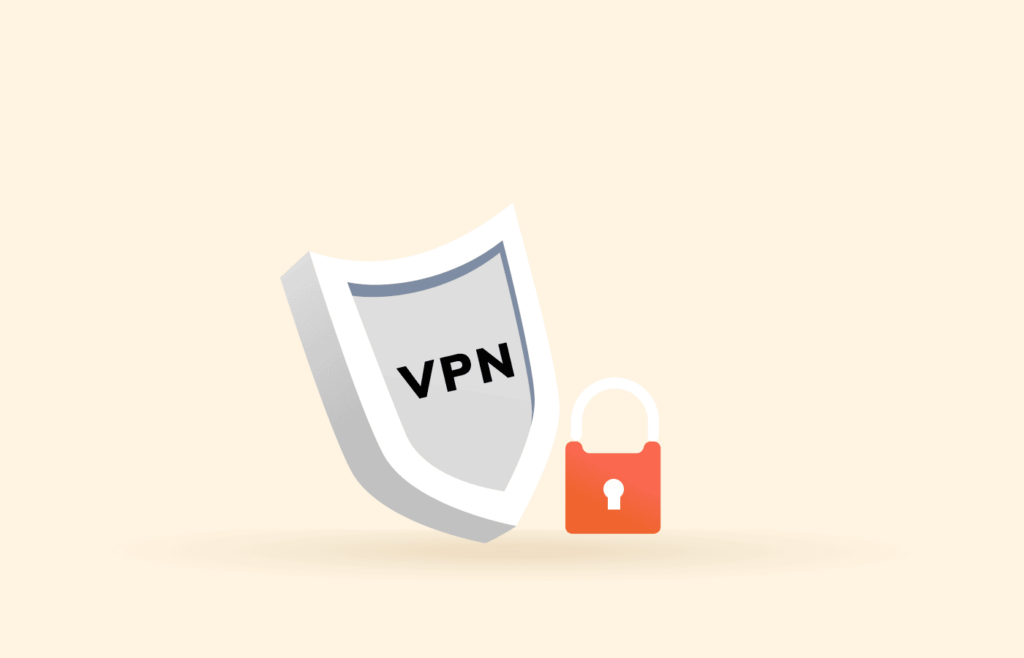
As explained above, people use VPNs for plenty of reasons. This diversified use is a critical advantage of VPNs that has increased the service’s popularity.
Therefore, no one can specifically recommend a virtual private network to all users. Since people have different requirements, it is likely that a VPN would work perfectly well for one person but would fail to satisfy another.
Perhaps, that is why we have so many VPN service providers available today.
So, before you start wondering how to choose the right VPN, you should first assess your needs. Then, when you are clear about why you need a VPN, you can decide better.
Here we list a few main questions to ask yourself to evaluate your need for a VPN.
1. Are you a frequent traveler?
Frequent travelers, tourists, and expatriates often face connectivity issues.
Naturally, when they can’t arrange an internet connection independently, they would have to depend on the service available in that region.
They are the ones who use free Wi-Fi the most during their stay at hotels.
During this use, they must agree to all the terms and conditions of the internet service provider in that area. If the country has strict data retention policies, foreigners will eventually lose their privacy.
Nonetheless, VPNs help them in securing their internet connection.
So, if you’re a traveler or are planning a visit to another country, you need a VPN.
Nonetheless, ensure VPNs are legal in your destination state before your visit. Otherwise, for places like UAE, where VPNs are highly restricted, find a workaround or professional help to access this facility.
2. Do you need a VPN to protect your home network?
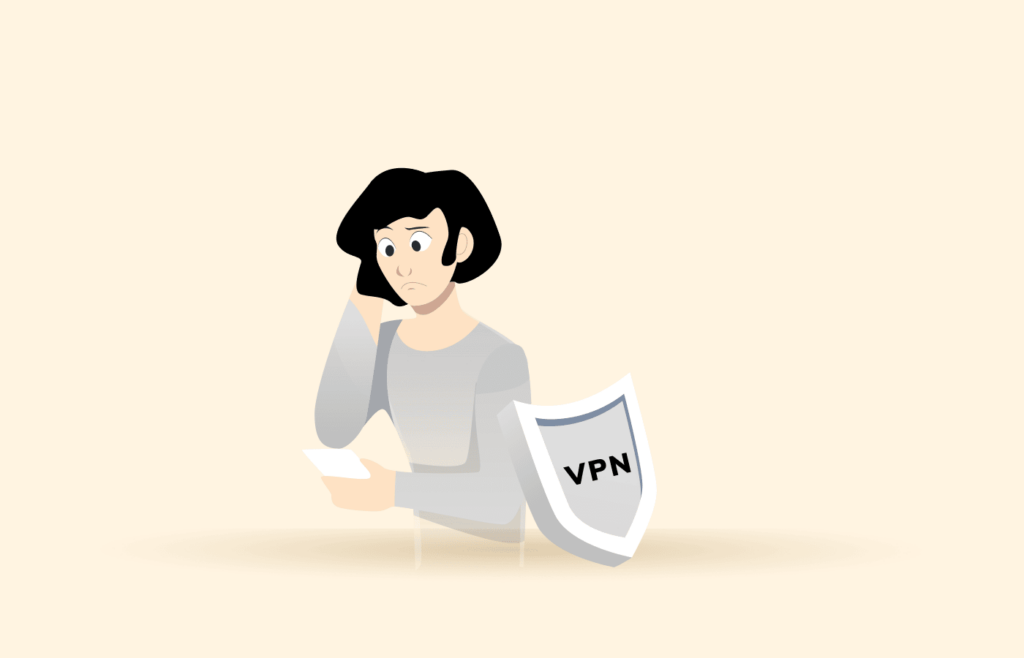
While VPNs protect your identity online, they may not be as effective for securing your home network at the app level.
When you connect to a remote VPN server, you connect to a remote network, not your own. Thus, you get protection from online threats only. In contrast, your network remains vulnerable to local attacks.
So, if this is your sole purpose of getting a VPN, better drop the idea. Or make sure that the one you buy effectively meets your needs.
A VPN can protect your home network only when applied at the router level. So, either opt for a VPN provider that offers such a service or purchase a router with a built-in VPN server.
3. Do you need a VPN service for safe browsing?
Using a VPN is a general safe browsing practice as well. From connecting to public Wi-Fi to using the internet at home, with a VPN, you remain secure.
In fact, you are immensely protected with a VPN from most cyber-attacks, even when connected to a compromised network. It’s because the data you generate is encrypted.
However, some public connections also claim to offer security as they prevent unauthenticated device connections. Nonetheless, these networks are still not secure since the password is known to many.
Also, you can never trust the router’s security, even if the WiFi is unharmed. If the router firmware isn’t updated, is vulnerable, or hacked, all users connected to it, including you, will be at risk.
However, you can prevent any problems to a greater extent with a VPN. Although a VPN router is a great option to address this issue, you can not apply it to a public network. Thus, you can install a VPN on your device(s) to connect to public WiFi networks.
For this, you don’t have to go for a costly VPN service. Instead, any modest VPN provider with optimum speeds and secure operations will suffice.
4. Are you looking for a VPN to access blocked content?
Whether you’re traveling abroad and want to access local content or wish to unblock content from another country at your own place, hiding your IP address doesn’t always work. It’s because the websites or content providers use other strategies to detect false IP addresses.
However, if you use VPN services, you will likely succeed in bypassing content restrictions.
That is not only true for accessing content not available in your area from the vendors’ end. But also applies to evading censorship implemented by the authorities in your area.
For example, if you want to unblock Netflix USA in India, you can use a VPN to connect to a US server. Likewise, you can access BBC iPlayer in the United States with a UK VPN server.
Content restrictions aren’t always at the country level. Rather, employers and educational institutions also block many websites on their networks. That is done seemingly in an attempt to remove distractions. But it isn’t so helpful since it also creates hurdles in accessing information.
So, keep your device loaded with a robust VPN if you need to access blocked content in your school or office, such as social media platforms.
5. Do you live in a restricted-internet country?
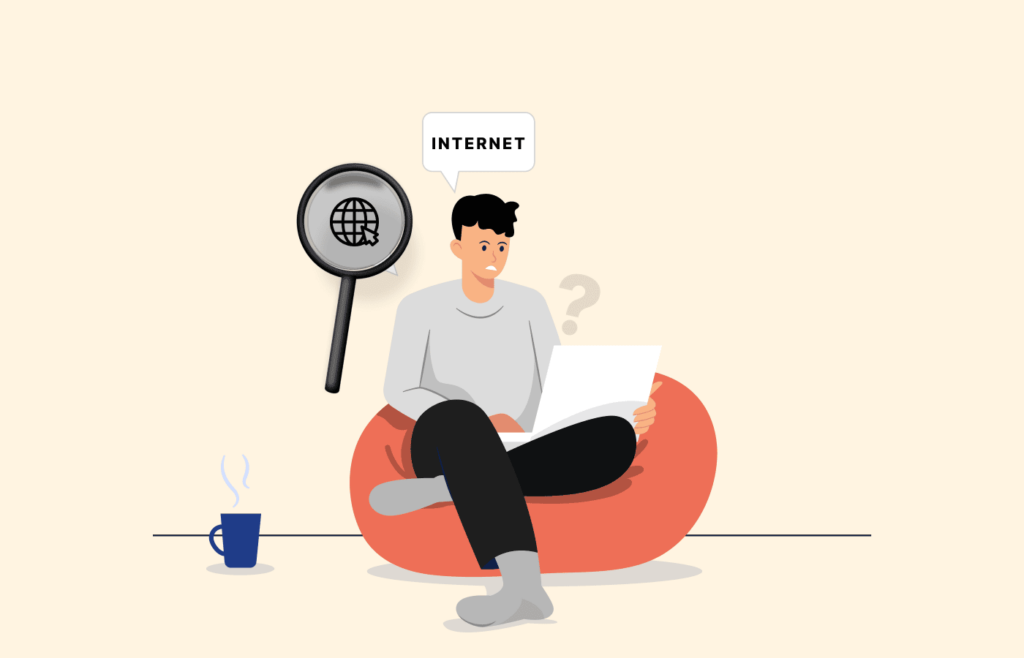
Countries like China, Iran, Russia, and UAE have strict internet regulations that curb internet freedom.
Thus, accessing the desired information online is troublesome for the people living, arriving, or temporarily staying in these countries.
Do you think a VPN would help in this case?
Technically, yes. Practically, …? Well, it depends on your choice.
Since these countries expect people to use VPNs to bypass censorship, they have restricted or legally banned VPNs.
So, either you cannot download a VPN at all, or, if you could, you are likely to get caught. The authorities implement deep packet inspection and similar techniques to detect VPN services.
Hence, you should avoid using this tool unless you understand how to pick the right VPN in such regions.
While almost all VPNs work pretty well to evade censorship, most VPNs do not work for countries with internet restrictions, as they can appear on the radar of surveillance authorities such as the NSA’s PRISM Program.
Therefore, you should choose a VPN provider that seamlessly operates in these locations.
Also, the VPN should offer a Kill Switch to prevent accidental exposure of your internet data packets online following a server disconnection.
6. Are you over-protective of your data?
Just like censoring VPNs, some countries implement strict laws for data retention.
While these regions may not apply harsh internet censorship and allow VPN providers to serve the customers, the authorities bound the VPN companies to log users’ data.
However, these nations advocate for data logging since cybercriminals usually exploit VPN services to stay under the radar. Hence, when VPN companies log users’ activities, such as IP addresses, browsing data, and more, the authorities can trace the criminals by asking them to hand over suspects’ data.
Nonetheless, it is still problematic because of the eventual breach of users’ privacy.
Of course, when VPNs log every user’s details, the purpose of anonymity and security fails right there.
So, if you want to use a VPN because you don’t want your data to be logged, choose a VPN with a proven no-logs policy.
7. Do you want to go anonymous online?
The more avid privacy advocates, cybersecurity experts, and investigative journalists often must stay anonymous online. Because of the sensitive nature of their work, such people cannot even afford accidental exposure of their IP addresses for milliseconds.
If you’re one of them, you can surely use a VPN to mask your online existence. But it won’t suffice the purpose.
Like any other program, VPNs are prone to technical glitches, the most common being a VPN connection drop. That’s why most vigilant VPN companies apply the Kill Switch feature to avoid this glitch.
However, you still can’t be sure of VPNs’ reliability. So, you need to use Tor along with a VPN connection. It is just an additional step required to protect your privacy.
How to choose a VPN that’s right for you? Here’s what to look for!
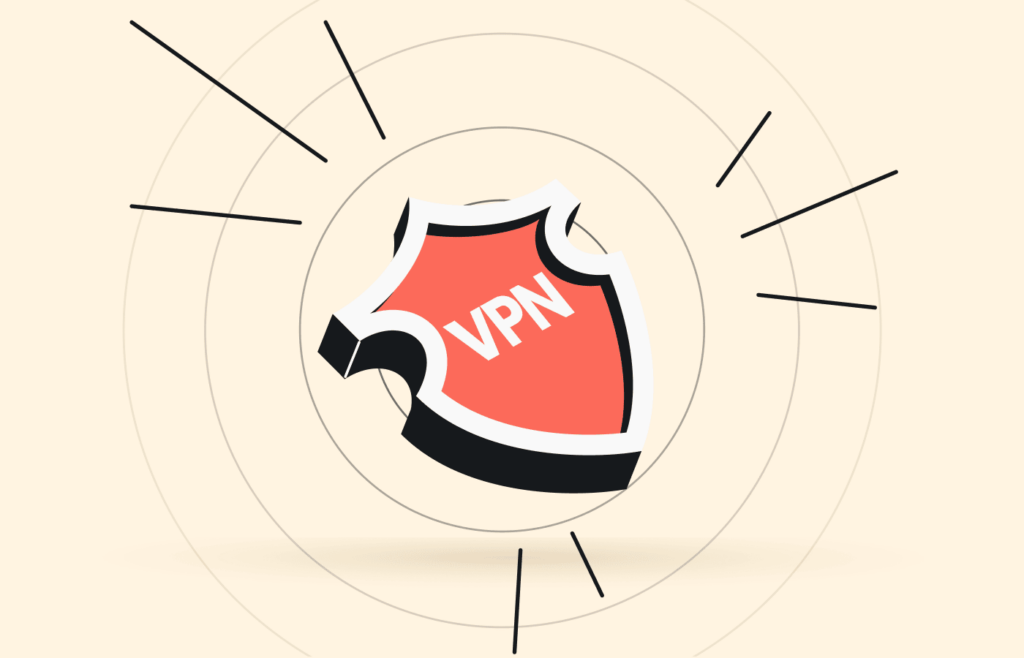
After reviewing the above section, you must have found why we emphasized evaluating your requirement before selecting a VPN.
As you now know, not every VPN service would meet your desired purpose of using it. Hence, you should jot down why, when, and how often you need a VPN before investing in any service.
However, your efforts don’t just end here!
Instead, you must also research the VPN companies, assess their performance and features, and check their policies. Go for it if you find them aligned with what you want and expect from your virtual private network. If not, look for some other service.
But how to select a perfect VPN? We hear you ask.
Don’t worry; read along, as below is a guide on picking the right VPN.
1. Encryption protocols
Different VPNs apply different encryption protocols. Most VPN companies also offer more than one protocol, which you can use one at a time.
These differences in encryption protocols explain that you shouldn’t trust a service if it uses the word ‘encryption.’ Not every encryption is indecipherable. Some protocols are extremely weak to protect anyone.
Since encryption and security are the prime reasons for using a VPN, you should only choose a VPN after going through its encryption protocols.
Commonly offered encryption protocols include OpenVPN, L2TP/IPsec, and PPTP.
Among these, OpenVPN is the most secure encryption protocol.
It is an open-source protocol that remains under the review of cybersecurity experts. Hence, any potential vulnerabilities will likely receive quick fixes. Most good VPN companies support this protocol. However, it might affect the internet speed.
PPTP is way faster than OpenVPN. Nonetheless, it is also vulnerable to attacks as it is the weakest.
The other one, L2TP/IPsec, is an intermediate of the above two protocols and is currently a built-in feature in most mobile devices.
So, you can choose a VPN with PPTP if you merely want mild ciphering of data with fast speed. However, if security is your priority, stick to the OpenVPN protocol.
2. No data-logging policy
When you connect to the internet, you expose your device with accurate details to ISP tracking and other online trackers. But, with a VPN, you authorize the service to take control of your device and reroute all the traffic to and from it through its servers.
This way, VPNs mask your identity by serving as the middleman between you and the internet. Unfortunately, this is where the problem exists.
Indeed, a good VPN serves as your armor to the online world.
Conversely, it becomes the sole entity that knows everything about you.
VPN knows your IP address, device details, browsing history, and more information. Thus, it can log this data, either wholly or partly, and use it in any way.
For instance, many free VPNs sell your data to advertisers and third parties. That is how they make money.
The paid one may or may not monetize your data. Nonetheless, they can still record and share your data with the government and other relevant authorities when needed.
So, what’s the purpose of using a VPN in the first place if you are eventually exposed?
Some top-paid VPN companies respect your privacy to the extent of employing a strict no-logs policy. It means they will never record even the non-identifying details. Even if they do, they record it for a maximum of a few hours for service maintenance and improvements.
Therefore, before investing in any VPN, review the company’s data-logging policies and verify that the service implements strict no-logging. Only then can you trust the service.
3. Jurisdiction
Today, the prying eyes of some regions strive to track almost every individual’s online activities. Known as Five, Nine, and Fourteen Eyes, these groups of countries extensively spy on their citizens. Plus, they also share this information with each other when required.
Due to surveillance, these countries implement harsh data retention policies for service providers, including VPN companies.
Although they would never publicly admit such measures, you can’t be sure about the no-log policy of VPNs based in these countries.
Nonetheless, you may go for them if the VPN service providers explicitly state no logging despite their base region’s policies.
However, we recommend you opt for VPN providers headquartered in neutral zones with minimal legal obligations.
4. Global coverage
Another important thing you should consider before choosing a VPN is the number of servers. The more extensive a VPN’s coverage is, the better its performance will be.
The ‘number of servers’ doesn’t necessarily mean that your VPN should offer more countries. Again, though, it’s a plus. But it’ll eventually be useless if the VPN provider hosts very few servers in each country.
Rather, a VPN with more servers in the same country offers more stable connections, avoids server congestion following colossal traffic, and ensures fast speeds.
Also, such a VPN works better with services like Crackle US and Netflix, which frequently block VPNs. You can quickly switch your server without changing the country when you detect a ban.
Besides, look for the number of servers available in your desired country. For example, a VPN with thousands of servers in Asia won’t benefit you if you want a VPN to unblock a USA site.
Hence, before choosing a VPN, analyze your VPN server requirements and see if the VPN provider meets your needs.
5. DNS and IPv6 Leaks
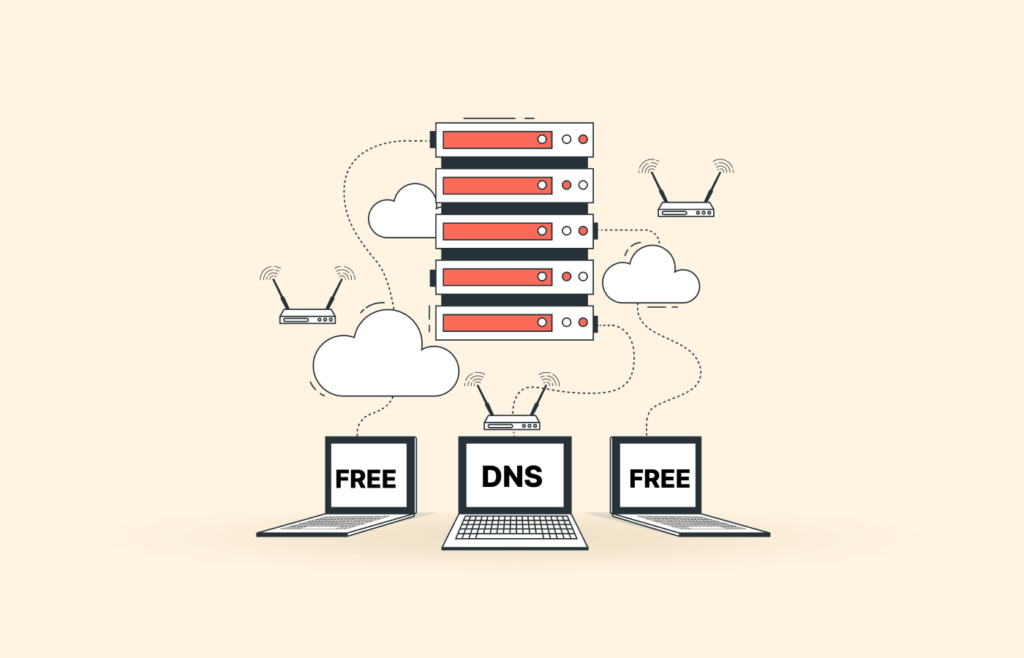
A common problem users face while using a VPN is failing to unblock sites’ restricted content. Some websites figure out that you’re faking your IP address; hence, they still block you.
But how is it possible?
VPNs are vulnerable to two main leaks – DNS leaks and IPv6 leaks.
A VPN leaks some differences between your visible online location and your computer behavior through these two sources.
These differences allow the target websites and web trackers to understand that you have employed some method to mask your online location.
In brief, a DNS leak happens when your device’s request still routes through your ISP’s DNS servers. Hence, there would be a visible conflict between the DNS and VPN servers. In contrast, an IPv6 leak happens when the VPN masks your IPv4 IP address but fails to handle IPv6. Hence, some websites can track the conflict between IPv4 and IPv6 to detect a VPN.
(To know how these leaks happen, check out our detailed guide on IP leak protection.)
To avoid these leaks, some VPN providers apply various techniques. For instance, they would block IPv6 or mask IPv6 alongside IPv4. Likewise, they would use their own DNS servers instead of relying on a third-party DNS to avoid DNS leaks.
So, whether your purpose is to bypass content censorship or remain anonymous online, ensure that your VPN prevents such IP leaks.
6. VPN features
Before subscription, check the availability of the following features with the VPN services. You should prefer the one that bears the maximum or all of them.
- User interface: Regardless of how robust a VPN is, it won’t help if you can’t understand using the app. Therefore, choose a service that offers simple and user-friendly apps that you can easily set up on your devices. Again, it is essential if you haven’t used a VPN before.
- Kill Switch: This feature disconnects your internet connection following connection dropouts, protecting your privacy. Consider it a must-have when choosing a VPN.
- Split tunneling: Though unnecessary, it is an ideal option to continue your local browsing activities, even with a VPN.
- Bandwidth and throttling: If you wish to use your VPN for streaming, ensure it doesn’t cap your bandwidth. Please review the VPN’s terms and conditions, read the fine print, and Google a bit to know them.
- The number of simultaneous device connections: The higher the number, the better. Yet, if you opt for a premium VPN, ensure it at least supports five simultaneous connections on one account.
- Compatibility with multiple platforms: Your VPN shouldn’t limit support for mobile phones and PCs only. Instead, it should support smart appliances, routers, and other devices. An ideal VPN should support Windows, Mac, iOS, Android, Linux, and routers.
7. Subscription costs and packages
Although using free VPNs is lucrative, they are likely to breach your privacy by monetizing your data. So, go for the paid ones that offer affordable packages.
Also, look for subscription options and choose the plan that best meets your needs. For instance, most VPNs offer monthly, bi-yearly, and yearly plans. Going with the more extended plan is ideal if you plan to use the VPN for a long time since it’s usually cost-effective.
8. Payment methods
Choose a VPN with more payment methods to choose the other if you face problems while paying with one option. Also, look for the availability of payments via cryptocurrency if you wish to make anonymous payments.
9. Free trial or money-back guarantee
While paid VPNs usually offer better services than free VPNs, you can’t trust every paid VPN for the services. And, of course, risking your money without knowing the service isn’t wise.
Therefore, look for any free or paid trial offers from the VPN provider. In the latter case, ensure the service has a genuine money-back guarantee to keep your money safe. (You can find some ideal VPNs with lucrative trial offers here.)
10. Customer support
Whether you’re an avid VPN user or will be choosing one for the first time, you may get stuck at any point where you would need help. Hence, you must seek a VPN service offering vigilant customer support to answer your queries.
While you may usually find email support with most providers, 24/7 customer service with live chat is ideal. Otherwise, make sure that the response time isn’t long.
11. Customer reviews
A higher number of positive customer reviews gives an idea about the overall impressive services of a VPN provider. Yet don’t fall for the fake reviews; look for the ones indicating verified purchases to learn about the service.
Can I choose the right VPN by going through the VPN reviews?
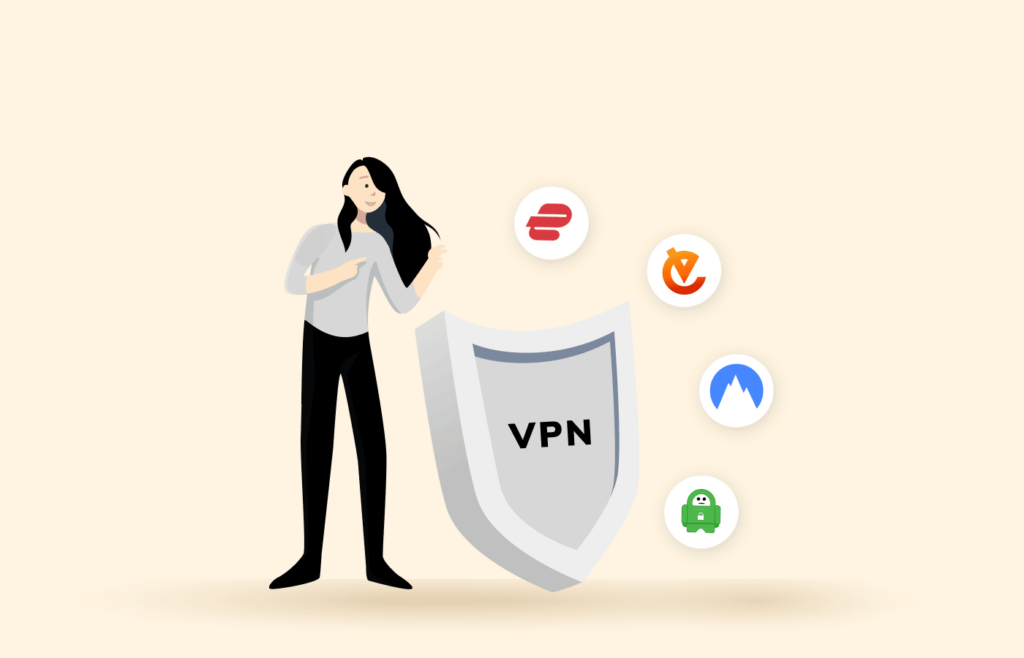
You will find numerous VPN reviews if you search online for the best virtual private network services. Often, these reviews contain a lot of praise for specific services. But does it mean that those VPNs are always outstanding?
Maybe, no! Instead, what it hints at is that the reviews are paid promotions.
Many blogs and review websites serve as VPN affiliates. They make money by redirecting leads to the VPN providers through their content.
Since it’s about business, they will persuade you to opt for those services. Sometimes, they might even lie to you in their reviews. They would hardly touch the problems with the VPN and highlight the pros to make them appear flawless.
Such reviews are a problem because you can’t trust their recommended services.
However, there are some ethical VPN affiliates that, despite earning commission for redirecting leads, never go for limited promotions.
Such reviews would not typically advocate for an ABC VPN; instead, they would highlight the service’s problems. Hence, you get a better idea of the VPN providers’ performance.
To identify the genuineness of a VPN provider, check out their affiliate program. Also, go through their policies for marketers and resellers and choose the one that condemns boastful promotions.
I’m confused. Can you help me choose a VPN?
After reaching this point, you will have a pretty good idea about which VPN to choose.
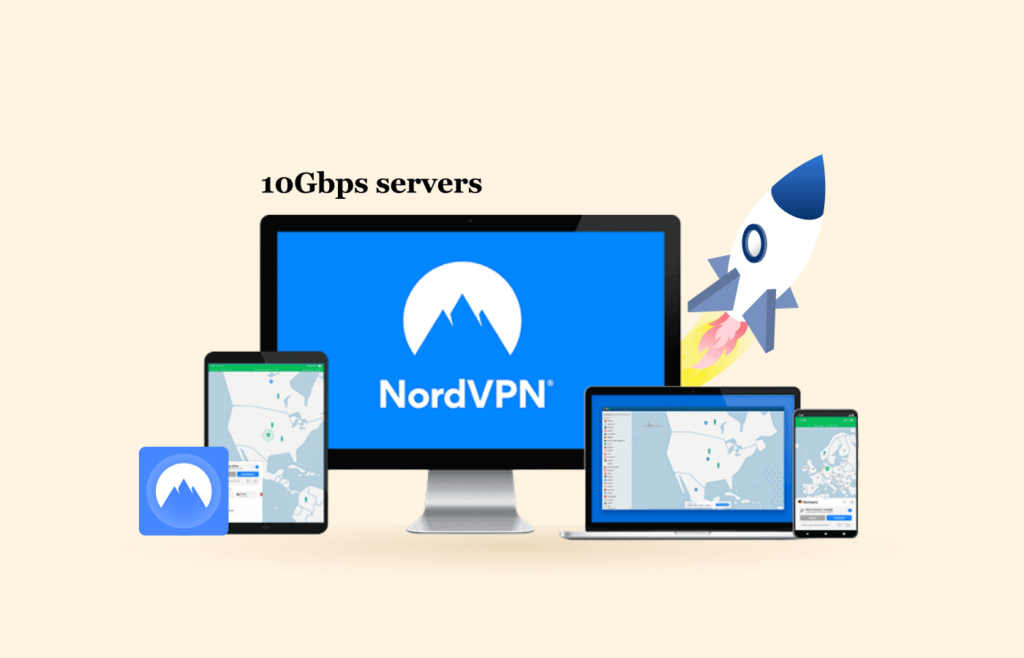
However, you might feel overwhelmed after learning how to choose a VPN through this guide. If you haven’t used a VPN before, you would be confused about where to begin.
So, here we advise the three best VPNs for you based on research and multiple tests.
- NordVPN: Super-fast VPN service based in Panama. The provider offers ten simultaneous connections on a single account and supports all major platforms, including routers. The subscription plans are also affordable, whereas NordVPN protects your payments with a 30-day money-back guarantee.
- Surfshark: The best VPN with the cheapest subscription plans. Surfshark offers unlimited simultaneous connections and is compatible with all major platforms. This provider is based in the Netherlands. And, like ExpressVPN, it provides a risk-free paid trial with a 30-day money-back guarantee.
- ExpressVPN: Offers military-grade encryption, based in the privacy-friendly jurisdiction of the British Virgin Islands, supports all major platforms, and offers eight simultaneous connections. While the subscription costs are relatively higher, ExpressVPN offers a risk-free 30-day money-back guarantee. (If you want to use this service for free, check out this detailed guide to getting ExpressVPN free trial.)
| Features | NordVPN | Surfshark | ExpressVPN |
|---|---|---|---|
| No. of Servers | 6,800+ servers in 113 countries | 3,200+ servers in 100 countries | 3,000+ servers in 107 countries |
| Price (per month) | $3.59/month | $2.30/month | $8.32/month |
| Supports split Tunneling on | Windows, Android, macOS | Android, Windows | macOS, Windows, Android, |
| Apps | Windows, macOS, Android, iOS, Linux, routers, Fire TV, | Windows, macOS, Android, iOS, Android TV, Linux, routers, Fire TV | Windows, Linux, macOS, Android, iOS, Fire TV, Android TV, routers |
| Simultaneous Connections | Up to 10 devices | Unlimited devices | Up to 8 devices |
| Money-Back Guarantee | 30 days | 30 days | 30 days |
(Though this site runs an affiliate program to keep serving you/our readers for free, we never go for paid reviews. So, monetary gains do not influence our VPN recommendations here.)
These three VPNs are our choice because not only do they offer superb performances, but they also take care of your privacy.
FAQs
In most cases, you should leave the VPN on all the time. This is because it is an essential security tool that will keep you safe online. Also, your streaming service might see your IP address and block your connection if you disconnect.
